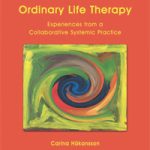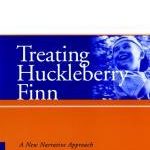In sharp contrast with the current top-down medicalized method to treating addiction, this book presents the felt sense polyvagal model (FSPM), a paradigm-shifting, bottom-up approach that considers addiction as an adaptive attempt to regulate emotional states and trauma.
The felt sense polyvagal model draws from Porges’ polyvagal theory, Gendelin’s felt sense, and Lewis’ learning model of addiction to offer a graphically illustrated and deeply embodied way of conceptualizing and treating addiction through supporting autonomic regulation. This model de-pathologizes addiction as it teaches embodied practices through tapping into the felt sense, the body’s inner wisdom. Chapters first present a theoretical framework and demonstrate the graphic model in both clinician and client versions and then teach the clinician how to use the model in practice by providing detailed treatment strategies.
This text’s informed, compassionate approach to understanding and treating trauma and addiction is adaptable to any school of psychotherapy and will appeal to addiction experts, trauma specialists, and clinicians in all mental health fields.
Contents:
- A Prologue: My Women’s Group
- Chapter 1. Early Days: The Initiation of a Trauma Therapist
- Chapter 2. Finding Focusing and Thinking at the Edge
- Chapter 3. Thinking about Thinking about Addiction: Integrating Top-down and Bottom-up
- Chapter 4. Addiction: A Very Bad Habit
- Chapter 5. Facing the Truth About Addiction
- Chapter 6. Bringing Body to Mind: The Emerging Field of Interpersonal Neurobiology
- Chapter 7. Creating A Safe Nest
- Chapter 8. Bringing Polyvagal Theory into the World of Addiction
- Chapter 9. Experiential Psychotherapy and Gendlin’s Felt Sense: The Whole of a Situation
- Chapter 10. Bringing the Model to Life: Going Deep and Thinking Big
- Chapter 11. Nuts and Bolts: Embodied Assessment and Treatment Tool (EATT) and Focusing-Oriented Therapy Strategies
- Chapter 12. An Embodied Experiential Assessment: The Margaritas
- Chapter 13. Hailstorms and Turtles: The Felt Sense Polyvagal Dialogue (FSPD)
- Chapter 14. Lily and Lucas
- Epilogue
Author Bio:
Jan Winhall, MSW, FOT is an author, teacher, and psychotherapist. She is an adjunct lecturer in the Department of Social Work, University of Toronto. She is director of Focusing on Borden, a psychotherapy and training center. Jan presents internationally on trauma and addiction.
Review:
“Reframing addiction and its treatment through the lens of Experiential Psychotherapy, Polyvagal Theory, Interpersonal Neurobiology and Imago Relationship Therapy, Jan Winhall has produced a brilliant synthesis and expansion of addiction theory and treatment that should be read by all therapists, not just addiction specialists.” —Harville Hendrix, PhD, and Helen LaKelly Hunt, PhD, authors of Doing Imago Relationship Therapy in the Space Between
“In this insightful volume Jan Winhall brings together the essence of groundbreaking modern therapeutic practices with her own decades of hard-won clinical experience to fashion a new, deeply humane and promising model of addiction treatment, illustrated by poignant clinical vignettes.” — Gabor Maté, MD, is the author of In the Realm of Hungry Ghosts: Close Encounters with Addiction.
“In Treating Trauma and Addiction with the Felt Sense Polyvagal Model Jan Winhall introduces a new strategy to treat addiction that brilliantly integrates Gendlin’s classic concept of a felt sense with Polyvagal Theory. The author shares her intellectual journey in which unique insights transform two disparate perspectives into obvious complements leading to a powerful treatment model. As Polyvagal Theory gives the language of neuroscience to Gendlin’s felt sense, the phenomenological world of Gendlin becomes transformed by Polyvagal Theory into observable shifts in autonomic state. The product of this creative journey is an integrated therapeutic strategy with the potential to decode the wisdom of the body with its full repertoire of survival reactions into positive outcomes that promote optimal mental and physical health. These successes are highlighted by new abilities to co-regulate with others that lead to successful trusting relationships.” —Stephen W. Porges, PhD, Distinguished University Scientist, founding director, Traumatic Stress Research Consortium, Kinsey Institute, Indiana University Bloomington; professor of Psychiatry, University of North Carolina at Chapel Hill.






